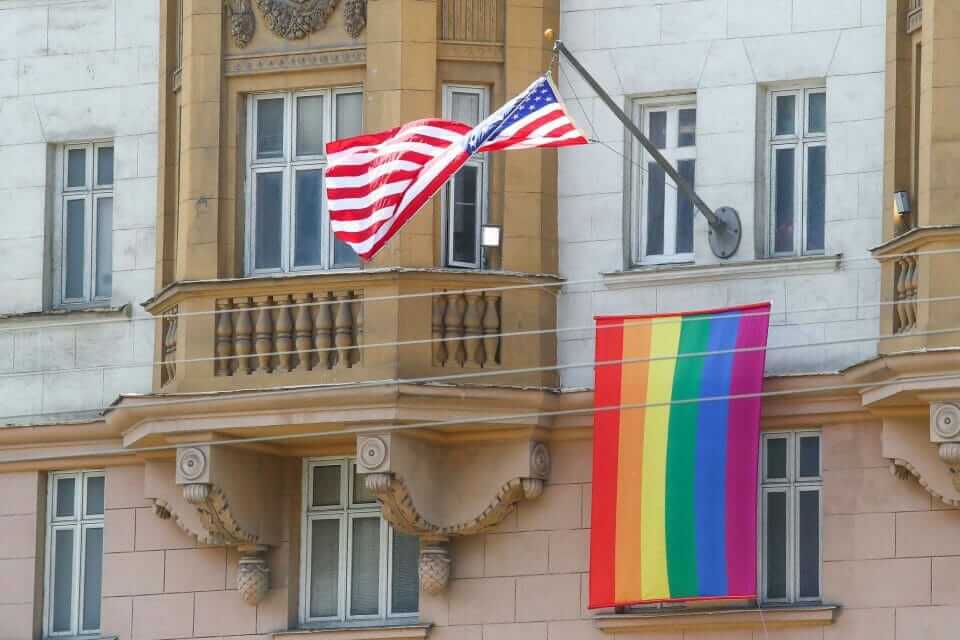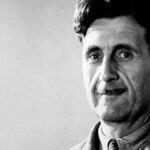
“Although reaching immense influence in the 20th century, the mass man is the ‘spoiled child of history,’ and when he goes in search of bread, says Ortega, he always does one thing, ‘He wrecks the bakery.'”
“If you want to lead the people, you must learn how to follow them.”
– The Tao te Ching
Spiritual Power
“Either I rule or I obey.” This is Spanish philosopher José Ortega y Gasset’s stark formulation for the elemental nature of human societies. But he immediately follows with, “By obedience I do not mean mere submission—that would be degradation—but on the contrary, respect for the ruler and acceptance of his leadership, solidarity with him, enthusiastic enrollment under his banner.” Beyond a certain size, societies tend to generate certain kinds of divisions of labor and, generally speaking, the larger the society, the more hierarchical it is. In a healthy society, all members more or less accept the reality and necessity of hierarchy; they accept that some will have more authority than others. The majority accepts the rule of what Ortega calls the “select minorities.”
The penultimate chapter of Ortega y Gasset’s 1930 classic Revolt of the Masses is entitled “Who Rules in the World.” Most of the book concerns the emergence of a way of thinking after World War I and its ascendance to power in Europe and Russia. Ortega dissects the nature and inadequacies of the “mass man,” whose ways of thinking and ideas of rule are fundamentally flawed and doomed to collapse. As Ortega speculates on the future rule of Europe and the world, he makes a number of observations about the nature of human societies and the nature of rule.
All human societies are grounded on what Ortega calls “public opinion.” By public opinion, Ortega means a kind of consensus, or common understanding, of the nature of reality and of society. A given society may take many kinds of forms—tribal, feudal, theocratic, aristocratic, democratic—but its strength and stability are always a function of public opinion. Public opinion is a kind of invisible force which binds separate individuals into a coherent whole. “[T]he law of public opinion” writes Ortega, “is the universal law of gravitation in political history.” Society is held together by public opinion in a manner similar to the way gravity holds the solar system together. Public opinion is, Ortega says, a “spiritual power.” All individuals in a society partake in (and are guided by) this spiritual power.
While healthy or consensual societies share certain common characteristics, unhealthy societies often fail in similar fashion.
The ruler minority may have more power, but it also has more responsibility. A wise ruler understands this and that the function of rule is to maintain the whole. When rulers maintain the trust of the ruled, the spiritual power which unites ruler and ruled, not unlike gravity, tends to become invisible.
Like all natural forms, societies grow and flourish, but if they fail to adapt to changing circumstances, they may decay and perish. While healthy or consensual societies share certain common characteristics, unhealthy societies often fail in similar fashion. The common understanding that binds people begins to fray and disintegrate. As the spiritual power of public opinion atrophies, it is displaced by material power, and rule is maintained by what Ortega calls “brute force.”
Revolting Elites
Ortega’s observations concerning the flawed thinking of the mass man have been vindicated by history. Bolshevism and Fascism would prove to be “false dawns” devolving into terror or stagnation. By “mass,” Ortega is clearly referring to a state of mind and not a social class. The thinking of the mass man is doomed to fail because it violates all of the elements of viable rule. The mass man denies history, is fixated on abstractions, and having little or no sense of the spiritual power of rule, quickly resorts to brute force. Although reaching immense influence in the 20th century, the mass man is the “spoiled child of history,” and when he goes in search of bread, says Ortega, he always does one thing, “He wrecks the bakery.”
If the great totalitarian experiments are doomed, who or what “vital program,” wonders Ortega, shall give form and direction for modern societies? Traditional empires had collapsed in “the war to end all wars,” and the European nation-state was outgrowing itself but seemed incapable of moving to the next level of order. Many were being “liberated” from all traditional forms of authority and seemed to be enthralled with the very concept of liberation as an end in itself. For Ortega, this is a world of rights without obligations, and it is likely unsustainable. “If you are unwilling to submit to any norm,” writes Ortega, “you have, nolens volens, to submit to the norm of denying all morality, and this is not amoral, but immoral.”
Ortega was quite aware of the seductive power of ideas of liberation, and he specifically anticipated the ascendancy of American power. He was, however, skeptical that such ideas and the United States’ exalted “technicism” could generate a compelling and unifying vision. Nevertheless, following in the wake of World War II, democracy, free markets, and new technologies spread around the globe promising freedom, comfort, and an ever-proliferating set of rights.
All goes well so long as the wealth generation seems to outweigh the social and environmental disruption. However, by the end of the 20th century, the drawbacks of an ever-increasing globalization began to appear to outweigh the benefits. All around the world, including in the United States itself, alienation begins to outpace material mollification. Therefore, a growing rift appeared between rulers and the ruled. Again, Ortega’s intuitions have been proven prescient; the mere spread of technology and wealth is not enough to unite peoples into organic wholes, neither within nations nor across nations. The new globalized economy lacks a unifying spiritual power. It is mostly, in Alan Watts’ words, a “unity of disunity.” Nevertheless, economic and political power inexorably flowed from local communities to a new technocratic and bureaucratic elite.
Like in many wealthy countries, a new ruling elite has arisen in the United States, and it identifies less with the nation and more with global institutions. In much of the West in general, and in the United States in particular, tension has increased between the ruling elite and the more traditional, nationalistic populace. Historically, it is the elites who embody traditional social order and conventions. Yet, in a curious historical twist, it appears that it is not the greater masses who are in revolt against a conservative elite. Rather, there is now a ruling elite that subscribes to values increasingly at odds with many of their fellow citizens. Writing in 1994, social historian Christopher Lasch speaks of the “revolt of the elites”:
“Once it was the ‘revolt of the masses’ that was held to threaten social order and civilizing traditions of Western culture. In our time, however, the chief threat seems to come from those at the top of the social hierarchy, not the masses. This remarkable turn of events confounds our expectations about the course of history and calls long-established assumptions into question.”
This promise of wealth and liberation by our new elites would seem contrary to the mass man’s inclination to totalitarian political systems. Still, argues Lasch, it is precisely the elites who now embody the psychology of the mass man and who now dominate virtually all institutions in society:
“Today it is the elites…those who control the international flow of money and information, preside over philanthropic foundations, institutions of higher learning, manage the instruments of cultural production, and thus set the terms for public debate—that have lost faith in the values, or what remains of them, of the West.”
Huge transnational corporations and the state have more or less fused into an interdependent managerial class, a “clerisy” who increasingly identify with some global order. Well-educated and technologically savvy, they subscribe to a vision of social and personal liberation somehow insured by a perpetual deus ex machina of technological innovation and rule by experts and beneficent bureaucrats. Like Ortega feared, this is not a comprehensive vision but more of a morality of no morality, a view of no view, a metanarrative of no metanarrative. It claims to be egalitarian, anti-hierarchical, and anti-imperial, yet it manifests as among the most inegalitarian, hierarchical, and imperial forces the world has ever seen.
Like Ortega’s mass man, our new elites seem unaware of the organic nature of viable rule. They display little awareness that their authority arises from (and remains dependent upon) nature, history, and an underclass that does not necessarily subscribe to their values. In short, they lack a sense of the spiritual power that unites a society. Not surprisingly, as Lasch claims, they are simultaneously “arrogant and insecure.” It is not without some irony that these elites’ denial of nature and history is itself a manifestation of a kind of natural process.
The Circle of Life
“Leadership gone bad” historian Michael Vlahos writes, “is the oldest story of civilization.” The great irony of our new ruling elites is that they seem to believe they have escaped nature and history, yet their own behavior, argues Vlahos, follows patterns as old as human civilization itself. “The rise and fall of elites forms a distinctive narrative pattern,” writes Vlahos. “Indeed, the leadership vitality and decline of elites looks like a natural cycle, or circle of life.”
Vlahos identifies several stages in the evolution of ruling classes:
“First, there is a ‘founder’ generation: the leadership architects. They are succeeded by a ‘builder’ generation, extending the leadership franchise. After them come the ‘renewers,’ hoping to rekindle the founders’ (often their own fathers) vision. Hence, the first three generations are guided by the memories of an heroic past…”
Coming out of the unifying experience of World War II, our ruling elites remained intimately connected to the ruled. Indeed, the war itself encouraged a kind of spiritual bonding of what has been called “the greatest generation.” After the war, the United States experienced tremendous growth and prosperity, which eventually gave rise to what Vlahos calls a “manager” generation. In the latter part of the 20th century, this generation would seek to maintain and extend the wealth-generating processes. It begins to lose its identification of a heroic past and seeks to “shore up the status quo,” which is to say maintain and strengthen the wealth-generating processes. The proliferation of liberal democratic capitalism around the globe would prove so successful that Francis Fukuyama would even proclaim “the end of history.”
But, as history itself shows, there is no end of history. Our modern American society continues its natural processes. The managerial ruling elites become extremely wealthy and increasingly abstracted from any common life with their fellow Americans. Thus begins Lasch’s “revolt of the elites,” which is intensified as the manager generation is followed by what Vlahos calls “a born-to-rule ‘lifestyle’ generation…who have lost the original leadership calling, and who no longer feel the weight of mythic obligation.”
Human societies are not necessarily destined for collapse. They are capable of renewal or transformation. But if left unchecked, argues Vlahos, “[i]t is…the spoiled, entitled, born-to-rule generations that drive the old ship under.”
Wrecking the Bakery
This lifestyle is highly formally educated, entitled, and idealistic. Its participants tend to live in a world of symbols and abstractions—not a world where thinking is connected to doing. They no longer look to a common past for values and morality. This new “liberal tribe,” argues Harvard social scientist Joshua Greene, is “bound together not by a shared history…but by a set of abstract ideals.” In his enthusiasm for this new morality, Greene seems quite unaware that an extreme fixation on abstract ideals is precisely what historically characterizes the mass mind and its proclivity to totalitarian rule.
Vlahos observes that ruling classes not only go through common stages but also that the late stages of rule share certain common characteristics. Vlahos lists five characteristics of our “lifestyle elites,” which seem evocative of the mass man and directly relevant today.
- Elites always seek to grow their status and wealth. Power begets power; the rich get richer. The emergence of a global economy and new technologies has generated unheard of levels of wealth. The elites have been the beneficiaries of a “meritocratic” educational system that selects those traits which are most valuable for the emergent techno/bureaucratic world order. Our elites do not think of themselves as motivated by power and wealth; however, from an early age, they have been conditioned to value certain ways of thinking and to see their own financial and social status as more or less “merited.” This sense of entitlement inevitably leads to Vlahos’ second characteristic of elites.
- Elites become disconnected from the people they once led. More wealth, more disconnection. In particular, much of the “lifestyle” generation has little or no experience with people who do not think as they do. This results in a vanishing sense of common citizenship and the loss of the need to cultivate the spiritual power of unity.
Although there is a significant geographical separation and an urban/rural separation between rulers and ruled, there is also significant divergence in ways of thinking or consciousness itself. Lasch references Robert Reich’s term “symbolic analysts” for this elite class. This is a kind of thinking that encourages a facility with abstractions. Our entire educational system beginning from first grade serves as a sorting mechanism which selects for those with a facility for abstractions. This is thinking more or less disconnected from doing. These symbolic analysts contrast to the generally less formally educated world where thinking is intimately connected to doing. Our lifestyle elites have been implicitly informed from an early age that their ways of thinking are the virtual definition of intelligence and that they are deserving of the right to rule.
- Elites come to believe they have become the nation. Success breeds separation, and separation breeds hubris. Our elites experience themselves affirmed by prospering, so why would they not believe themselves to be destiny? The “arc of history” apparently bends toward themselves. Controlling virtually all societal institutions, they find themselves in possession of incredible power. They imagine themselves not so much as a leader of fellow citizens but as a redeemer class obligated to fulfill their abstract ideals for the benefit of all of society.
Ortega notes that the mass man, once in power, sees the state as a tool or even an extension of himself. All existing laws, conventions, and procedures are superseded by the fulfillment of the abstract ideals of the ruling classes. For today’s elites, all of those in positions of political, administrative, cultural, or legal authority are obliged to fulfill the abstract ideals of diversity, equity, and inclusion.
For many of those on the receiving end of these powers, much of this goes contrary to their more traditional understanding of law and morality. They find it offensive, confusing, and often downright Orwellian. Diversity appears to mean everyone looks different but thinks alike; equity ensures all are equal but some are more equal than others; inclusion means everybody is welcome, except for those who do not accept the logic of diversity, equity, and inclusion.
And, in recent years, the distrust between ruler and ruled has been particularly exacerbated by the one institution whose historic function is to foster trust.
The ruling elite, in turn, looks upon the ruled (in Thomas Sowell’s word) as “benighted.” At best, our “anointed” elites manifest a benign condescension toward their fellow citizens and, at worst, outright contempt. Almost three decades ago, Lasch wrote of elites, “When confronted with resistance to [their] initiatives, they betray the venomous hatred that lies not far beneath the smiling face of upper middle class benevolence.” Today, this contempt is even less veiled. And, in recent years, the distrust between ruler and ruled has been particularly exacerbated by the one institution whose historic function is to foster trust.
The function of a “free press” in a democracy is very much the cultivation of the spiritual power which unites rulers and ruled. The “media” is the conduit which allows a free flow of information whereby the ruler and ruled understand and trust each other. As Thomas Jefferson knew, a free press is inevitably filled with all kinds of foolishness. Nevertheless, he trusted that a kind of viable common understanding of reality would emerge from an unfettered exchange of ideas and information: “Even this evil is productive of good. It prevents the degeneracy of government, and nourishes a general attention to the public affairs.”
Today’s media largely consists of the very lifestyle generation which rules. Its allegiance is apparently not to “the Realm,” as they say in Game of Thrones but, rather, to the Kings and Queens of institutional power. As the spiritual power atrophies, it is not so much displaced by brute force as it is by propaganda—the incessant propagation of a narrative which justifies and celebrates the abstract ideals. Our let-them-eat-facts media understands that controlling minds can be more effective than controlling bodies.
- Elite “solutions” just make things worse—sometimes by design. Unlike other types of regimes, a democracy allows for, even requires, that its citizens have opinions even on policies that do not directly affect them. As Alexis de Tocqueville once observed, this breeds abstraction in its citizens. The larger the democracy, the greater the abstraction and the more likely a citizen’s intentions are disconnected from outcomes. Nietzsche once described an inordinate belief in the power of intentions as a “calamitous superstition.”
Today, the superstition of intentions has reached world historical proportions. Our ruling elites are almost always disconnected from the consequences of their own policies. For much of our ruling elites intentions are reality; abstract ideals displace any morality built up over time from experience.
As our ruling elites pursue their abstract ideals, they inevitably encounter resistance. Those who resist the fulfillment of the abstract ideal are, virtually by definition, the enemy, or what Hannah Arendt calls “the objective enemy.” What history reveals is that the mass mind is always invested in scapegoats. The scapegoat class consists of those who stand in the way of the fulfillment of the abstract ideals. An elite “solution” may not have the intended effect, and it may generate alienation and resentment, but it also may help clarify the form and nature of the scapegoat class. A poked bear is an angry bear, and an angry bear is a dangerous bear obviously in need of control.
- Elites can never see how their path leads to a fall. Any history of the great revolutions of the past reveals ruling elites who have lost touch with the reality around them. What characterizes the French or Russian ruling elites, for example, is not mendacity or malice but, rather, obliviousness.
Never before in history have ruling elites had such easy access to the sentiments of the ruled. Nevertheless, they appear as willfully indifferent and oblivious to the anxieties and needs of their fellow citizens as any Bourbon or Romanov prince or princess. Apparently content with caricatures of their opposition, they seem intent on reenacting the fate of their historical counterparts—all of which tends to confirm the transcendent power of the natural cycle of rule.
Perhaps nothing describes the modern world more than a periodic and extreme dissociation of ideas from reality. Ortega describes the dissociation from reality in the interwar years as follows:
“Take stock of those around you and you will see them wandering about through life like sleepwalkers in the midst of their good or evil fortune, without the slightest suspicion of what is happening to them.
You will hear them talk in precise terms about themselves and their surroundings, which would seem to point to them having ideas on the matter. But start to analyze those ideas and you will find that they hardly reflect in any way the reality to which they appear to refer, and if you go deeper you will discover that there is not even an attempt to adjust the ideas to this reality…It does not worry [the individual] that his ‘ideas’ are not true, he uses them as trenches for the defense of his existence, as scarecrows to frighten away reality.”
We might well ask, “How accurately does this describe our time?”
Do Your Job
Who then shall rule? Spiritual power unites not only across space but also across time. Ortega argues that a healthy society not only shares a common past and present, but a common future. But the past cannot simply be ignored, denied, or destroyed. “The past” writes Ortega, “is of its essence a revenant. If put out, it comes back, inevitably.” The past is a kind of spirit which is beyond our powers to annihilate: “The struggle with the past is not a hand to hand fight. The future overcomes it by swallowing it. If it leaves anything outside it is lost.” Any viable future must, therefore, account for and accommodate the past, or, in Ortega’s words, the future must continually “digest” the past.
What has commonly come to be called “populism” could simply be described as a civilizational gag reflex.
Our current ruling elites appear to have no intention of digesting our past. Our past is apparently unpalatable to their ideas of the future. Rather than be digested, the past is to be deconstructed, denounced, and, not unlike an old television show, cancelled. Additionally, a new vision of the future is to be force-fed to the ruled. Needless to say, millions of Americans are reluctant to swallow what they feel is being rammed down their throats. What has commonly come to be called “populism” could simply be described as a civilizational gag reflex.
Much has been written for and against populism in recent years. For some, it is pure menace; for others, it is salvation itself. But regardless of what political form populism takes, the very emergence of populist resistance always signifies one thing: Ruling elites are not doing their job.
Chris Augusta is an artist living in Maine.










